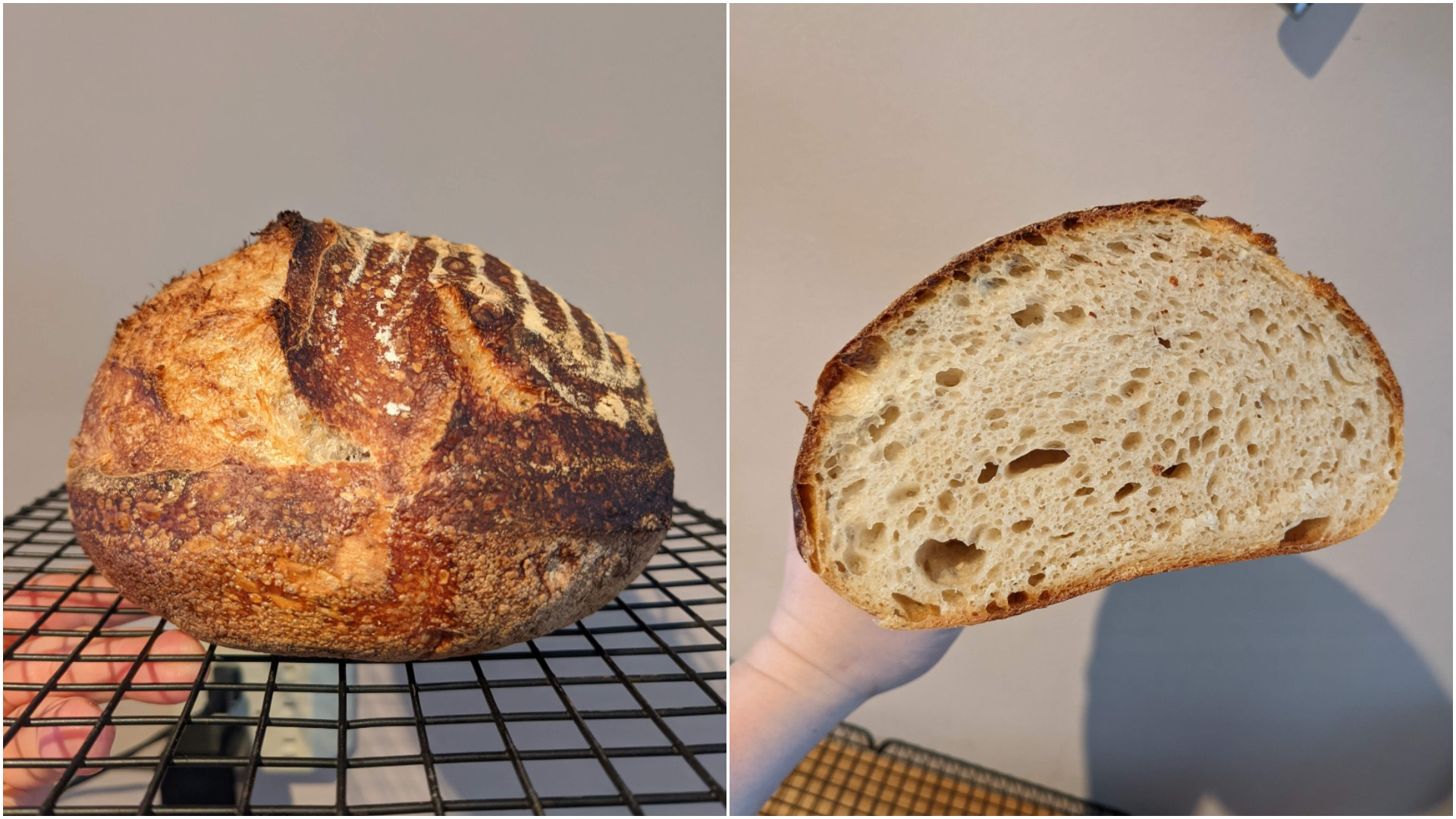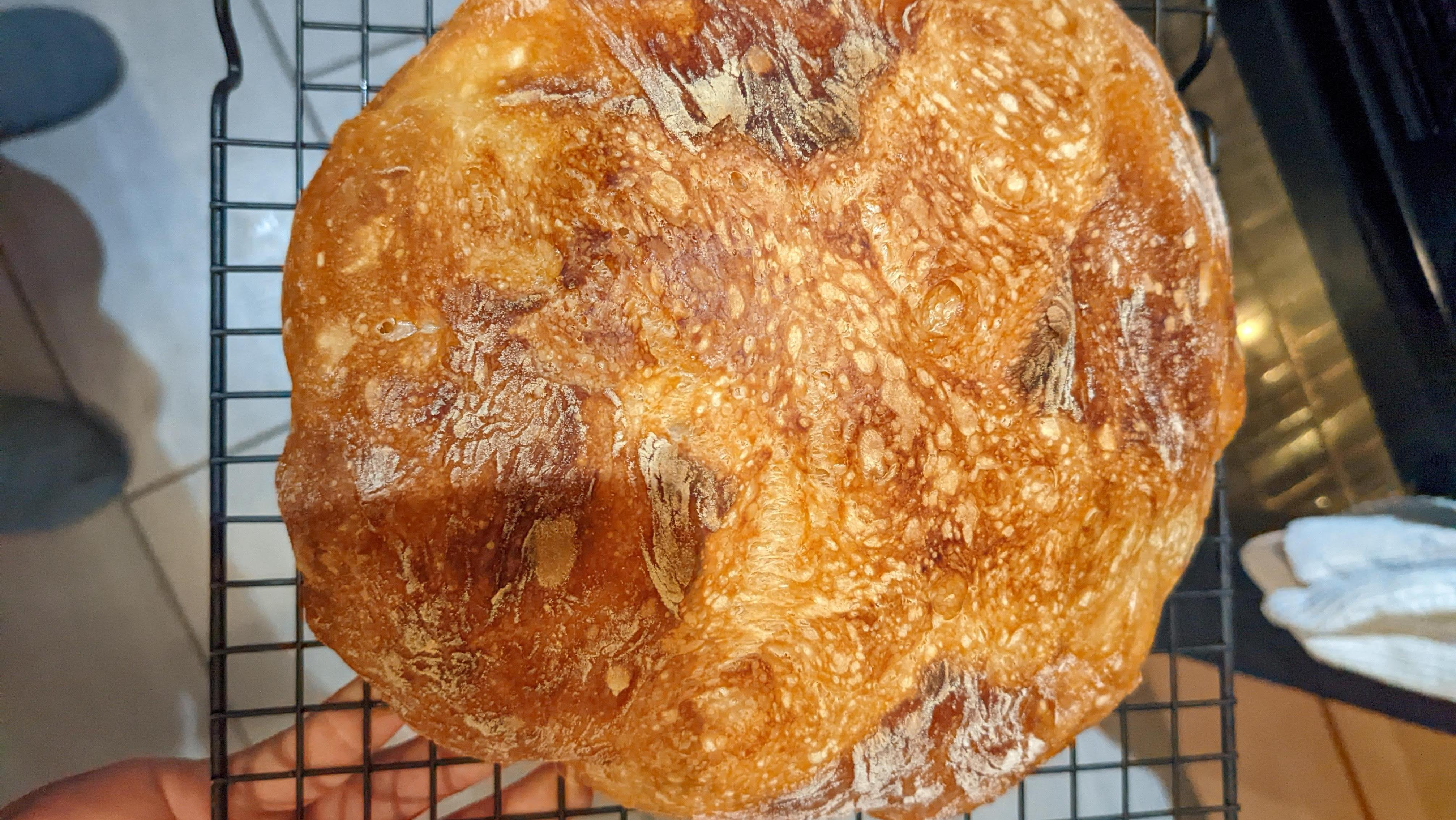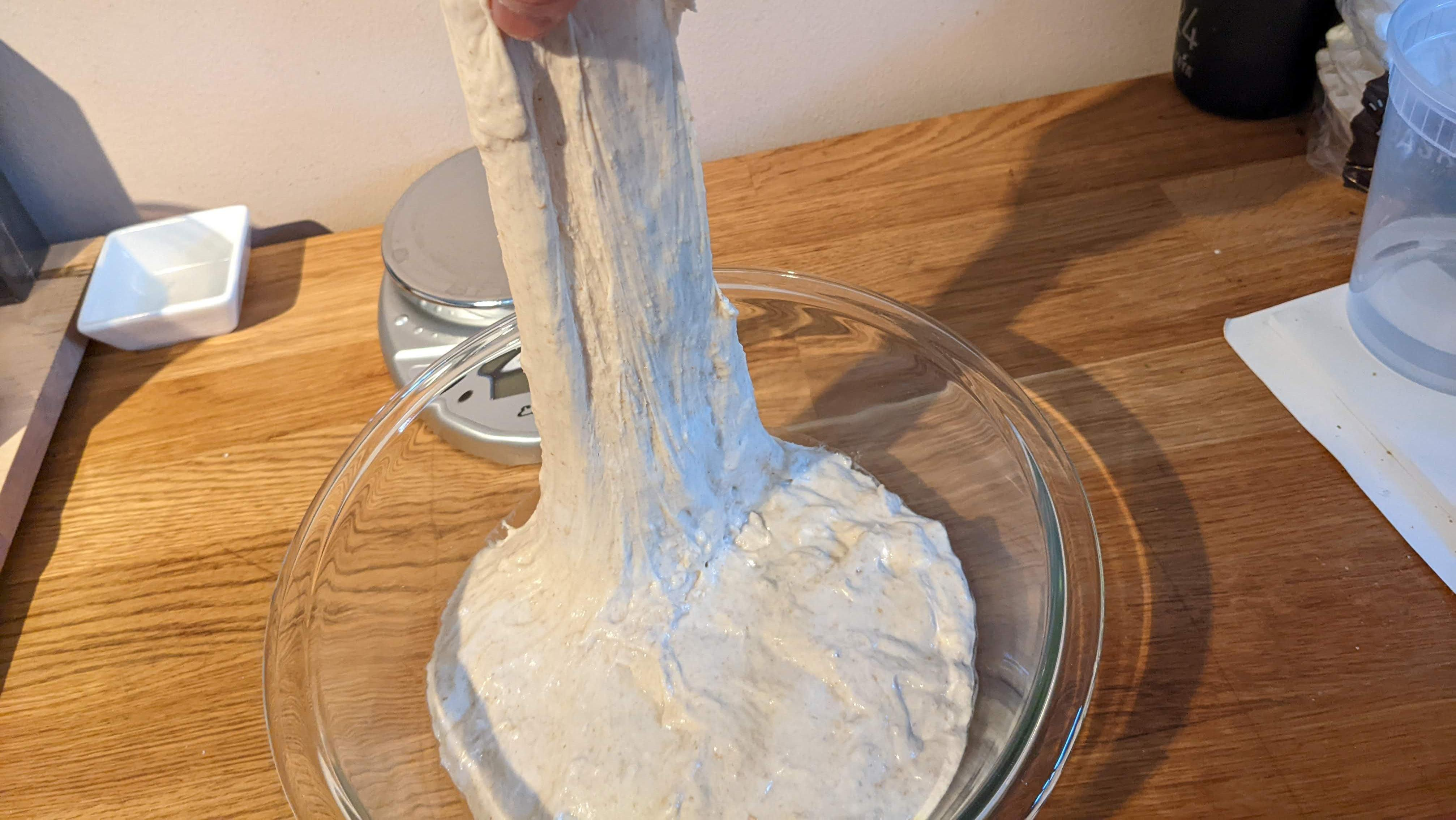Why Homemade Bread Is Good For You, Even If You Don't Eat It
There are plenty of good reasons to bake bread beyond the delicious end result.
If you were on social media at all during the height of the pandemic when we were all home, scared, and with a lot of extra time on our hands, you were probably wading through the sourdough craze. Frickin' everyone was baking, left and right. And suddenly, everyone in the whole world seemed like expert bakers. Everyone except me.
I stubbornly resisted the homemade bread wave, because I had zero interest in it (I did play a lot of video games). But long after the obsession faded, I decided this year that I would try baking my first loaf of bread, just to say I did it. I had already dedicated a lot of my career to the kitchen, so I figured I might as well finally tackle baking, you know? This wasn't planned out for the sake of an article, either. I just wanted to give it at least one go.
An easy, go-to recipe for homemade bread
I started out with the easiest thing I could find: no-knead bread. This recipe, written by Jim Lahey and published by the New York Times, has long been lauded for its simplicity. There are only four ingredients: flour, water, salt, and yeast. You don't need specialized equipment other than a Dutch oven—no electric mixers or anything. And there's barely any technique involved, aside from mixing it and letting the dough sit overnight. You shape the loaf, dump it into a Dutch oven, and bake it off.
My first loaves came out slightly misshapen. They rose, but not like the stuff I've seen in bakeries. But the thing was, they were delicious. Crackly crust, fluffy insides. I was so proud. So I stuck to that recipe and cranked out a few loaves here and there whenever we needed bread. I'd brag about how good I got at it, even though there's so little work involved that there's nothing to brag about.
How to make sourdough
Now that I'd gotten accustomed to a little bread baking, I finally decided to tackle sourdough, which felt really daunting. I'd heard nightmarish stories about how challenging it could be, but I wanted to progress past my Lahey loaves.
There's a head-spinning amount of resources online when it comes to bread baking, and I settled on King Arthur's technique to make a sourdough starter, which nets you a batch of wild yeast that's captured from the air around you. I eventually got a starter going, which took way longer than expected, around 10 days, but it happened.
I'd mentioned my bread baking curiosities to my former coworker, Travis, with whom I slung pizza for years. He's humble about it, but he's an extraordinary baker. The loaves he puts out seem effortlessly delicious, complex, chewy, and full of flavor. I can't even begin to fathom what he knows, along with the instinct and intuition he's honed over the years, but it all culminates in a final product that just seems so loved when it gets to your hands. I wasn't planning on getting to that level, but I needed a little encouragement.
One day, when I was covering a Saturday shift at my former employer's restaurant (someone needed the night off), Travis had brought me a bundle of goods to borrow. He lent me a banneton (proofing basket), a bread lame (razor for slashing dough), an oval Dutch oven for baking loaves in, and most importantly, Tartine Bread by Chad Robertson.
Travis told me that this was his favorite cookbook for bread, and so I tackled its most important recipe for what Robertson calls "Country Bread." This is what the majority of the recipes are based on, in the book. It's the only one I've needed.
At first it was absolutely daunting. There's a lengthy introduction on the process of this sourdough recipe and how it came to be, but then Robertson breaks the process down into baby steps. And so I just went one foot ahead of the other, following the recipe bit by bit without looking too far ahead, because I'd get intimidated. Many hours later, I ended up with a delicious loaf of sourdough bread, and I was so proud of it.
The process, at its shortest, takes around eight hours, if you opt to bake off your loaf the same day, which is what I typically do. But thankfully, once you have it down, you barely do any active work, and there's impressively little cleaning up to do aside from washing out some bowls and wiping down a table after shaping your dough.

Learning to bake bread is good for you
So here's the thing: it's now been months since I started. I've baked about a loaf every week and a half since I began, some of which are great, some of which are absolutely fucked-up disasters. I still get annoyed and furious at the process. It's not always fun, at least not for me. But the loaves have all been edible and wildly better than what I buy from the store. The difference is almost unreal.
For the record, I haven't learned much about the technical stuff; I don't know a lot about hydration percentages or the different types of flour, and I can explain jack shit about gluten formation. All that stuff scared me, and I thought that was something I'd have to care deeply about along the way to great bread. But it's not. It's just me, a rock-solid recipe, attention to a few key details (there really aren't that many), and most importantly, patience.
My life is really, really, busy these days. So busy that it drives me bonkers. Every time I finish up a personal project or a familial obligation, two more things spring up ahead of me. Most days and nights of the week are spoken for in advance. But now, when I want bread, I make sure to plan at least one day where I can slow down, get out of my head a little, and make a loaf.
No, you're not getting an introspective, long-winded essay out of me about baking bread as some metaphor for something totally unrelated. What I'm saying is that I really think you should try baking a loaf a few times a year, even if you think you're not going to be good at it. I'm certainly not. It'll force you to slow down (hey, proofing takes a while), keep you in the moment as you're measuring, mixing, stretching, and shaping, and in the end, you'll have something pretty amazing to show for your time. That's worth the effort, don't you think?


